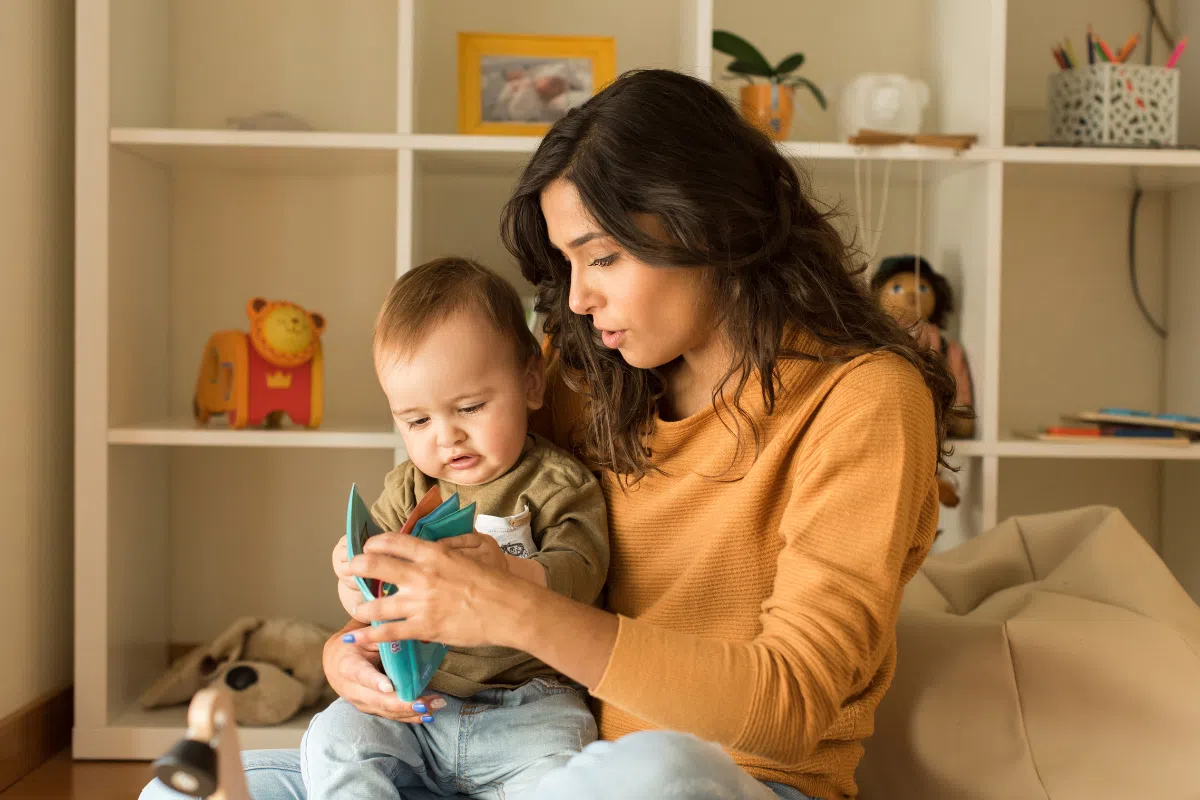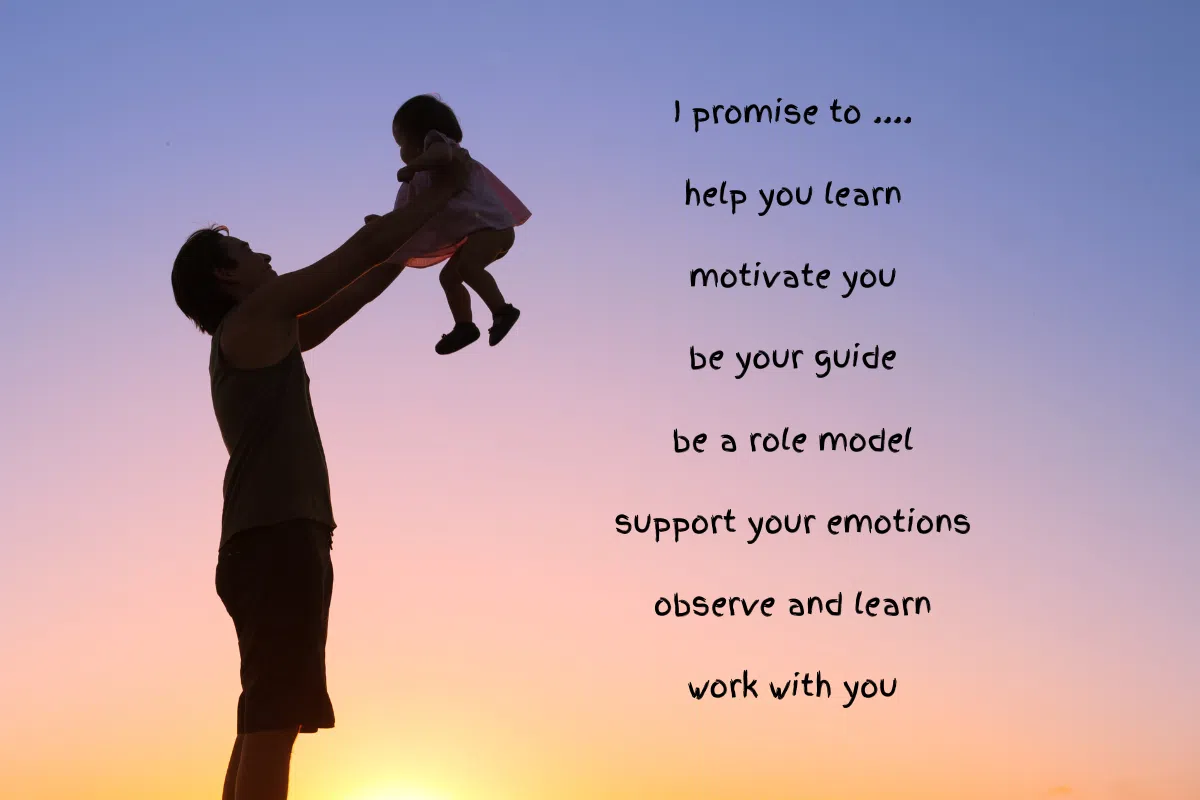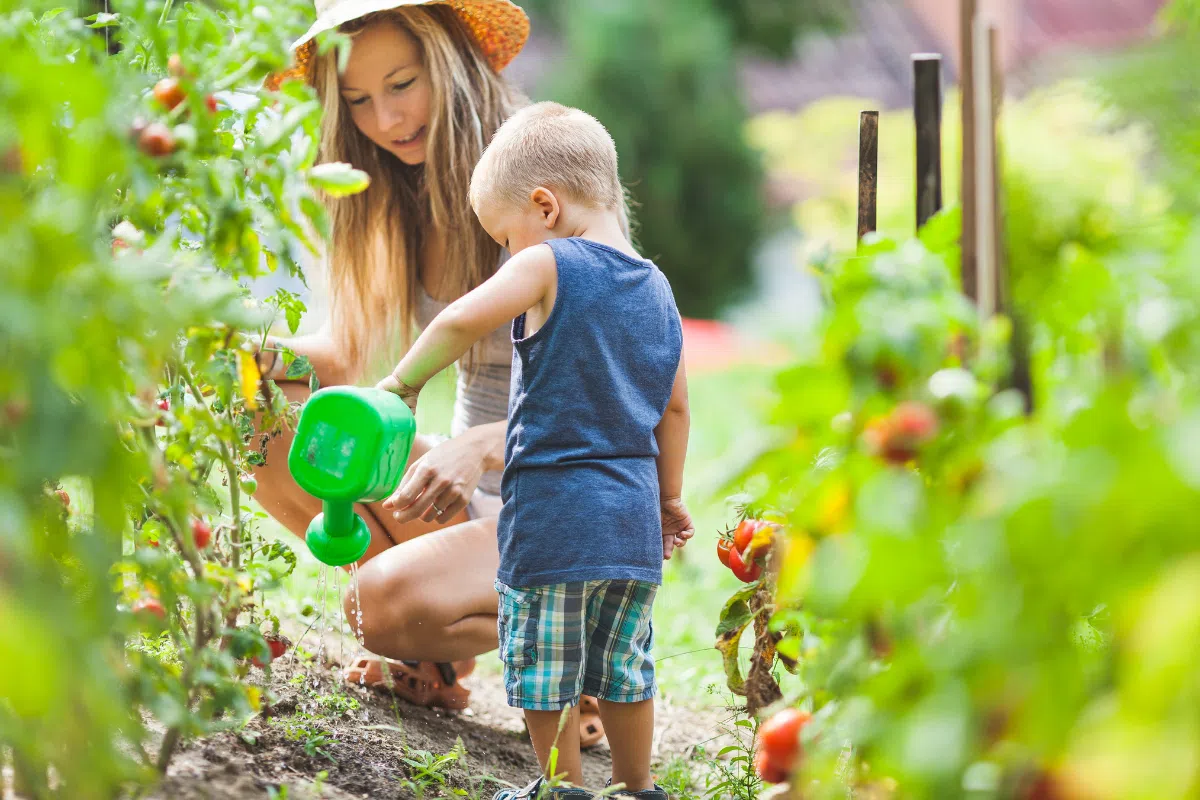
From the moment your child is born, you become their first teacher. The way you connect and communicate with them, especially between birth and the age of 2 years, will have a profound impact on their development. Let’s explore how you can enhance your parent-child bond and set your child up for the best start in life.
The importance of the parent-child bond
When children experience warm, positive connections with their parents, it significantly enhances their growth and learning. These supportive relationships equip children with a deep understanding of their world.
Kids learn about the security and safety of their environment, their own emotional worth, who truly cares for them, and the outcomes of their emotional expressions and moods.
Foster this beautiful and beneficial relationship with your child by:
- Being present and engaged in their daily activities
- Dedicating quality time to spend just with them
- Creating a safe and loving environment
The bond you build with your child now will have a lifelong impact on their development, relationships, and overall well-being.
Why 0 – 2 years is a key time for your child
The first 2 years of a child’s life is unparalleled in terms of neurological and emotional development. Their mental, emotional, and cognitive progress, as well as the overall brain development, depends on a strong, affectionate bond with a primary caregiver, usually a parent.
The most important thing you can do for your child in this critical stage, and beyond, is give them your love, time, and support.
How early learning can enhance parent-child bond
Doing early learning activities together is a great way to enhance parent-child bond.
At Shichida Australia, a core element of our classes for babies and toddlers is strengthening this bond; parents attend the class with their child. We support your child’s development and help you become your child’s first (and best!) teacher. Doing early learning activities together extends beyond education; it influences the overall relationship dynamic between you and your little one.

Learning about the world together
Joining your child in their learning journey forms a stronger emotional connection, cultivating trust and a sense of togetherness to enhance parent-child bond. Your child receives a wonderful message; that their thoughts and ideas matter and you’re both learning together.
Encouraging a curious mind
Be open to your child’s (many!) questions. They’re naturally curious, and a child’s inquisitiveness is a powerful tool for learning. Answer their questions, no matter how repetitive they may seem. Help them find out information and get them involved in your everyday tasks.
Developing emotional intelligence
Nurturing emotional intelligence is as vital as developing IQ.
Understanding different emotions and how to manage them is an essential aspect of your child’s emotional development and will enhance parent-child bond.
Reading a book together, for example, allows you to discuss the characters’ emotional reactions. You can talk about feelings, consequences and social interactions, teaching your child life lessons in a way they can understand.
Strengthening bonds through play
Not all learning needs to happen in a structured way. Play is an essential part of your child’s early learning. When you join in and play their games, you enter their world. You share their joy, excitement, and creativity, forging a deeper emotional bond while enhancing their cognitive and social skills.
Nurturing your child’s interests
Your child has unique interests and talents. By noticing and encouraging things they enjoy doing, you can guide learning in a direction they love.
This makes the process even more fun! Are they fascinated by animals? Take them to a zoo or watch a wildlife documentary together. Do they love painting? Create an art corner at home. Show your child you value their interests by noticing and nurturing the things that light them up.
The power of consistent encouragement
At Shichida Australia, our learning program motto is Love, Accept, Praise.
Positive reinforcement is a fantastic tool for helping to shape behaviour and build confidence. Be sure to acknowledge your child’s efforts, not just achievements. Praise them for their curiosity, attempt to solve a problem, or perseverance with a challenging task.
Encouragement boosts their self-esteem and motivates them to continue learning.
Making the most of shared moments
Each day gives you so many opportunities to enhance the parent-child bond. Whether reading at bedtime, cooking together, or working on a school project, these are the moments your child will cherish and remember.
Your role in early-learning for your child
You’ll play many roles during shared early learning activities, the most important being a reliable source of love and support!
You are:
Facilitator of Learning: It’s your job to provide the resources and environment for your child’s learning. You’re in charge of setting up activities, offering the right tools, and creating a safe and stimulating space where your child can explore and learn freely.
Motivator: Inspire your child to participate in learning activities. Your encouragement of curiosity, perseverance, and a love for learning fosters a positive attitude in your child towards education.
Guide: You’re there to help your child navigate the many challenges they face during learning activities. When they encounter difficulties, you provide guidance, helping them understand concepts, solve problems, and think critically.
Role Model: Your child looks up to you and often mirrors your actions. When you demonstrate a positive attitude towards learning, curiosity, and a love for reading and knowledge, you’re setting a powerful example for your little one.
Emotional Support: Learning can sometimes be challenging and frustrating for your child. Be the support your child needs to manage their feelings and cope with any frustration or anxiety they may experience.
Observer: By watching your child during learning activities, you’ll pick up on their strengths, interests, and areas where they might need extra help. You can choose and create learning activities that will suit your child’s unique needs.
Collaborator: Join in on learning activities with your child. Whether it’s building a block tower, drawing a picture, or solving a puzzle, these shared experiences promote learning and strengthen your bond.
Being part of your child’s early learning journey lays the foundation for their lifelong love of learning.

Activities for parent and child learning together
From structured activities to more organic forms of play, there are plenty of activities for a parent and child to learn together.
Cooking or baking together: Simple cooking tasks can be a learning experience. Your child can learn about measurements, follow a sequence of steps, and even try basic maths. This also encourages teamwork and responsibility.
Get crafty: Arts and crafts encourage creativity, fine motor skills, and concentration. It could be as simple as colouring, making paper animals, or a DIY project. Creating something together gives a sense of accomplishment and shared joy.
Playing board games and complete puzzles: Age-appropriate games can teach children about rules, patience, taking turns, and sportsmanship.
Puzzles are also a great learning tool for your child to develop critical thinking, memory, and attention to detail. The Shichi Duck Puzzle offers six different puzzles of Duck pictures with each puzzle ranging from six to fifteen pieces.
Stacking Blocks or LEGO: Playing with stacking blocks or LEGO helps develop fine motor skills, spatial awareness, creativity, and problem-solving. You’ll also get involved in your child’s imaginative world.
Science Experiments: Simple, safe science experiments can fascinate learning. You could try making a homemade volcano, mixing colours, or growing crystals, to spark an interest in science and create a sense of wonder.
Books and stories
Reading: Reading a book every night before bedtime is a great example of parent and child learning together, as it enhances the child’s vocabulary and nurtures a love for literature. Make it interactive by asking questions, discussing the characters and plot, to encourage comprehension and critical thinking skills. Explore our range of Speak Up Stories – each book only has eight pages, from which children can understand situations and stories easily.
Storytelling: Encourage your child to make up and share their stories. This activity nurtures creativity and language skills and offers insight into their thoughts and emotions.
Enjoy nature together
Explore the outdoors: Nature is full of learning opportunities! Go on walks together, point out different plants, animals, and insects, and talk about the change of seasons.
Gardening: Planting seeds and then watching them grow can teach children about the cycles of nature, responsibility, and patience. Consider gardening a hands-on science lesson and a rewarding activity to enjoy with your little one.

Music
Dance around to music: Music stimulates a child’s brain and senses. Sing songs, play simple instruments, or have a dance-off. It’s a fun, energy-burning activity that can enhance coordination and rhythm.
Explore Schichida’s educational and fun music collection for a whole range of songs and musical activities for various ages.
Enhance parent-child bond with Shichida
Learn how to enhance parent-child bond, interact and play in an educational setting. Our classes offer a unique opportunity to bond with your child. With small class sizes, hands-on parent education and a wide range of cognitive, emotional and social skills covered in each lesson, Shichida will teach you how to give your child the best start in life.


